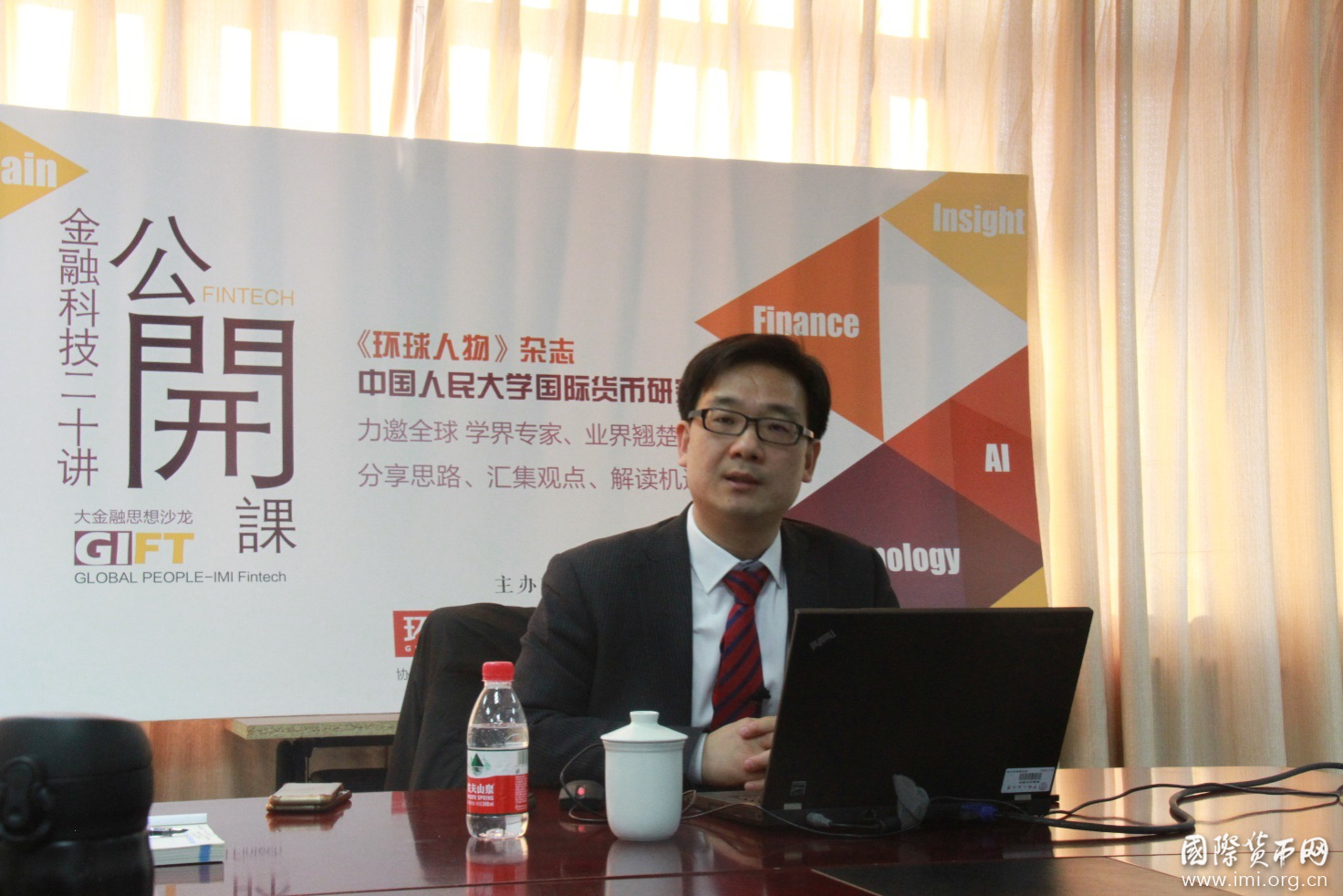Macro-Finance Salon (No. 76) and Fintech Open Classes (No. 11): Development and Regulation of China’s Cash Loans and Internet Small-Loan Industry
2017-11-26 IMI Professor Yang Dong first introduces the basic theory of cash loans from the perspective of Internet consumer finance from five aspects—the definition, history, development status, operational mechanism and practical value of cash loans. He points out that there are two sources of Internet finance in China. One is Alipay and the other is Internet small loans. On this basis, payment and small loans are vital foundations for the rise of Internet finance in China. Cash Loans in China arose in 2014, mainly due to the rapid development of the Internet finance. Online lenders got into cash loans early and banks and large internet companies also ran such business as well. Cash-loan products have features of high efficiency, high interest rate, high risk and are low threshold.
Next, taking the United States, Canada and Australia as examples, Professor Yang Dong introduces the notion of payday loans in other countries. In his opinion, the concept of cash loans in our country is very different from that of payday loans. Many policies on payday loans abroad are worthy of reference. For example, the UK limits the interest expenses to protect financial consumers’ quota model, prohibit repeated borrowing and demand risk control measures like establishing data-sharing platforms. And the US CFPB adopts conduct regulation to protect consumers. He also introduces the legal basis for cash loans in China, including government documents and self-regulatory rules of cash loans and the industry regulation of cash loans across the country.
Finally, Professor Yang Dong analyzes the existing problems of cash loans in our country, sorts out the regulatory targets and concepts and then puts forward his suggestions on the regulatory system of cash loans in China. He mentions that cash loans in China mainly face problems concerning market access, risk control, interest rate legitimacy, personal information protection, violent collection and so on. The regulatory targets of cash loans cover three aspects. The first is to protect consumers. The second is to enable the healthy development of the industry. The third is to avoid systemic financial risks. Meanwhile, such regulation must be combined with flexible regulation, penetrating regulation, functional regulation and institutional regulation. We should further improve the new modern access management by learning from P2P regulatory measures while giving appropriate license issuance, market access, information disclosure and third-party verification. Moreover, we can prevent long-term borrowing and vicious lending and establish an anti-fraud system through technology-driven regulation. In addition, he suggests that financial regulation of cash loans should not be “one-size-fits-all” and more conduct regulation and technology governance should be adopted, namely RegTech to achieve effective regulation.
Professor Yang Dong first introduces the basic theory of cash loans from the perspective of Internet consumer finance from five aspects—the definition, history, development status, operational mechanism and practical value of cash loans. He points out that there are two sources of Internet finance in China. One is Alipay and the other is Internet small loans. On this basis, payment and small loans are vital foundations for the rise of Internet finance in China. Cash Loans in China arose in 2014, mainly due to the rapid development of the Internet finance. Online lenders got into cash loans early and banks and large internet companies also ran such business as well. Cash-loan products have features of high efficiency, high interest rate, high risk and are low threshold.
Next, taking the United States, Canada and Australia as examples, Professor Yang Dong introduces the notion of payday loans in other countries. In his opinion, the concept of cash loans in our country is very different from that of payday loans. Many policies on payday loans abroad are worthy of reference. For example, the UK limits the interest expenses to protect financial consumers’ quota model, prohibit repeated borrowing and demand risk control measures like establishing data-sharing platforms. And the US CFPB adopts conduct regulation to protect consumers. He also introduces the legal basis for cash loans in China, including government documents and self-regulatory rules of cash loans and the industry regulation of cash loans across the country.
Finally, Professor Yang Dong analyzes the existing problems of cash loans in our country, sorts out the regulatory targets and concepts and then puts forward his suggestions on the regulatory system of cash loans in China. He mentions that cash loans in China mainly face problems concerning market access, risk control, interest rate legitimacy, personal information protection, violent collection and so on. The regulatory targets of cash loans cover three aspects. The first is to protect consumers. The second is to enable the healthy development of the industry. The third is to avoid systemic financial risks. Meanwhile, such regulation must be combined with flexible regulation, penetrating regulation, functional regulation and institutional regulation. We should further improve the new modern access management by learning from P2P regulatory measures while giving appropriate license issuance, market access, information disclosure and third-party verification. Moreover, we can prevent long-term borrowing and vicious lending and establish an anti-fraud system through technology-driven regulation. In addition, he suggests that financial regulation of cash loans should not be “one-size-fits-all” and more conduct regulation and technology governance should be adopted, namely RegTech to achieve effective regulation.
